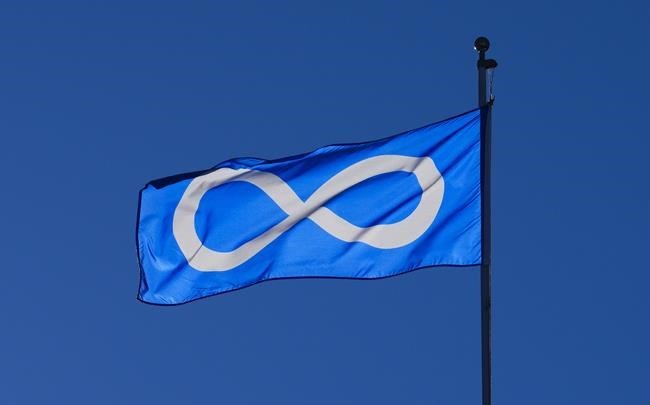OTTAWA — The Métis Nation — Saskatchewan is pulling its support for a federal bill that proposes to enshrine its self-government over concerns about the other two groups it recognizes.
President Glen McCallum said the legislation is holding the group back, and its members made the decision to pull support after a meeting Wednesday.
"As the Métis Government in Saskatchewan, it is our duty to put the needs of Métis in Saskatchewan first," he said in a release.
"Bill C-53 does not need to be part of our journey" to self-government and future treaties, McCallum said.
Leaders of Métis organizations in Alberta and Ontario have defended the legislation, saying it would rightfully give them control over child welfare and other internal matters.
But First Nations chiefs in Ontario have accused the federal government of overstepping its jurisdiction and alleged the legislation steps on their rights.
The Assembly of First Nations, which represents some 630 chiefs across Canada, passed a resolution calling for the federal government to kill the legislation altogether. The AFN's concerns are mainly focused on six new communities the Métis Nation of Ontario and the province recognized in 2017, which it says have no historical basis to exist.
The Métis Nation of Ontario disputes that assertion, pushing back against the idea Métis only exist around the Red River in Manitoba.
The Manitoba Métis Federation, meanwhile, has also opposed the extension of self-government to the Métis Nation of Ontario, saying the Ontario group's membership is not up to par with its definition of Métis.
At a House of Commons committee hearing in November, a high-ranking federal official testified that Ottawa has not verified the legitimacy of the disputed Métis communities in Ontario or the wider memberships of the provincial organization. Michael Schintz of Crown-Indigenous Relations and Northern Affairs Canada told MPsthe government isn’t required to do so.
NDP MP Lori Idlout said shortly after that hearing the government isn't "doing their homework to make sure that they are hearing from the right people."
Idlout said she can “understand why First Nations in Ontario would be greatly concerned about what’s going on.”
In a ruling earlier this month, the Federal Court said the federal government was too broad in defining whom the Métis Nation of Alberta represents when it signed a self-government agreement with the group. He said the government unduly lumped in two Métis settlements in the province which didn't want to be included.
"The only practical remedy is to quash the offending provisions of the agreement and to remit the matter to the minister for reconsideration," Judge Sébastien Grammond wrote in his decision.
The Saskatchewan group,which has largely kept to itself through tense public debates,is now distancing itself from the whole situation.
"This 'one-size-fits-all' approach did not recognize the unique context of (the organization) and exposed the legislation to legal and political pressures due to outstanding issues in Alberta and Ontario," McCallum said.
"As a result, the legislation has been stalled."
Still, McCallum said he remains committed to fulfilling the late Métis leader Louis Riel's vision for achieving self-government for the Métis Nation.
"We are on the precipice of having it in our hands. Today our people take control of our own fate. Our Métis story has been one of resilience, as we move forward on the path our ancestors started, it will be a story of triumph."
The legislation faced a testy House of Commons committee process, with 65 witnesses testifying and 274 briefs being submitted that argued vigorously either for or against its passage.
The proposed bill has yet to be brought back to the House of Commons after that process, with federal officials consistently saying they have no timeline for its return.
But Métis National Council president Cassidy Caron, speaking last week before a closed-door meeting with Prime Minister Justin Trudeau, said she looked forward to seeing the legislation move through third reading before being brought to the Senate.
The Métis National Council, of which the Métis Nation — Saskatchewan is a member, also passed a resolution brought forward by Métis Nation of Ontario president Margaret Froh in December calling for the bill's speedy passage.
Froh called the level of committee study "unprecedented," and said it set a new, negative standard for all future Indigenous self-government legislation.
"The position that some are putting forward fails to recognize the incredible and beautiful Métis stories of many other communities — some of which have a connection to Red River, but some don’t,” she said at the time.
"The legislative process being dragged out has resulted in the amplification of toxic falsehoods, misinformation and painful lateral violence that has negatively impacted Métis youth and Elders."
The Métis Nation of Alberta launched ads on X, formerly known as Twitter, late last year urging citizens and supporters to write to their MPs about why they should support the legislation.
“Not many of them have returned calls, which is very frustrating,” Métis Nation of Alberta president Andrea Sandmaier said at the time.
This report by The Canadian Press was first published April 17, 2024.
Alessia Passafiume, The Canadian Press



